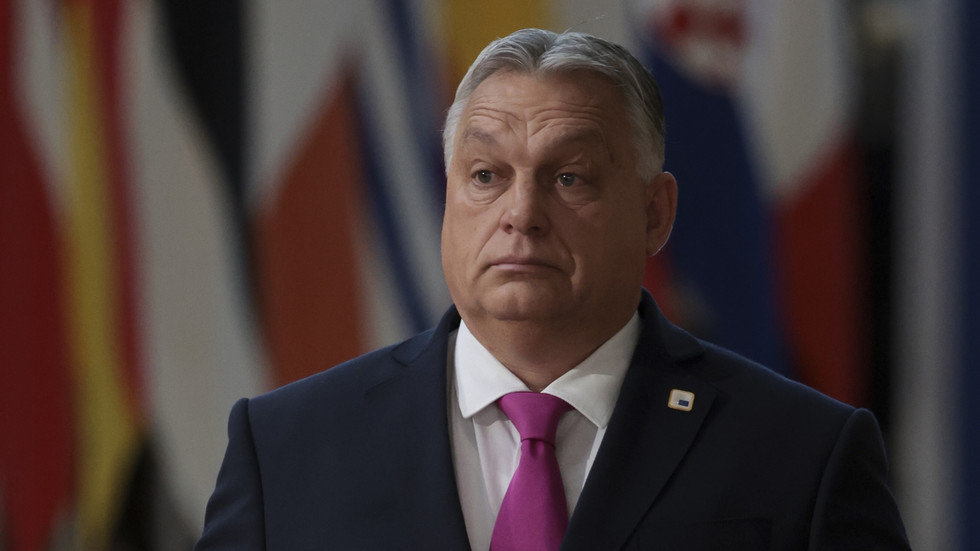Hungarian Prime Minister Viktor Orban has made a bold statement suggesting that Western countries are on the verge of experiencing defeat in the ongoing Russia-Ukraine conflict. His remarks highlight Hungary’s position of non-involvement and advocacy for peace amid a landscape where most EU and NATO members have aligned with providing substantial military support to Ukraine, amounting to nearly $200 billion. In a recent interview, Orban expressed his concerns regarding this alignment of Western nations, suggesting that they appear more invested in prolonging conflict rather than seeking a resolution, thereby losing sight of the impact of a sustained war. Orban articulated a critical perspective on the situation, asserting that while the majority of Western nations have not known defeat since World War II, they may soon confront the reality of losing a war, a situation he claims Hungary has consciously avoided by abstaining from involvement.
Orban has characterized the current stance of Western nations as fallacious, indicating that they are ensnared in a “Cold War logic,” reminiscent of past ideological conflicts. This mindset, according to him, extends beyond military engagement to an economic battleground, as evidenced by the imposition of sanctions not only against Russia but also against China. He believes this economic warfare diminishes the desire for peace and instead fuels the ongoing conflict. He suggested that there is a potential pivot in the U.S. political landscape that could encourage a shift towards pro-peace policies, alluding to a possible return of former President Donald Trump as a figure of hope for change in U.S. foreign policy. Orban’s pronouncements encapsulate a longing for a broader coalition favoring negotiation and peace rather than the continuation of hostilities.
Despite Hungary’s dissenting voice within the EU regarding military aid to Ukraine, Orban noted a shift in regional dynamics, particularly referencing Slovakia under its new leadership, which aligns more closely with Hungary’s stance against continued support for Ukraine. This newfound alignment offers Orban reassurance in Hungary’s position, suggesting that it may allow for more flexibility in economic decision-making and policy formulation that deviates from what he terms a “faulty economic policy based on war logic.” Orban’s optimism hinges on the notion that Hungary’s non-participation in the conflict, while maintaining its sovereignty in policymaking, will enable it to navigate the economic ripples created by the ongoing strife.
Orban also underscored the nuance within NATO regarding stances on the conflict, pointing to Turkey’s strategy of mediation and Croatia’s internal divisions between its leadership and governmental policies concerning the war. These varying positions within NATO illuminate a fragmented consensus on the appropriate response to the Russia-Ukraine situation. While some countries fervently support continued military assistance, others attempt to minimize involvement or even pursue roles as mediators striving for negotiation. Such disparities signify the complexity of the geopolitical landscape and highlight that not all allied nations share a uniform commitment to military action.
In drawing attention to Russia’s warnings about Western military aid prolonging suffering without changing battlefield outcomes, Orban emphasizes the precariousness of the situation. This sentiment captures the broader concern about the possibility of escalating conflict with dire ramifications, including potential confrontations with Moscow. The Hungarian prime minister’s remarks reflect a deep-seated anxiety regarding the loss of control over regional security dynamics following heightened military declarations and actions in response to the conflict. He contends that the protracted support for Ukraine may not lead to victory as anticipated by its supporters in the West but rather may set the stage for a deeper involvement in an unwinnable war.
Ultimately, Orban’s expressions of apprehension about the West’s trajectory in the Russia-Ukraine conflict conjure a narrative that underscores the importance of peace over war. His criticism extends beyond military engagement to the economic strategies employed by Western nations, which he perceives as misguided. By advocating for a diplomatic resolution to the conflict rather than its perpetuation, Orban positions Hungary as a potential beacon for peace amidst a cacophony of military rhetoric. Such perspectives contribute to the ongoing dialogue about the future of international relations and the critical importance of reevaluating strategies in light of evolving geopolitical challenges.

